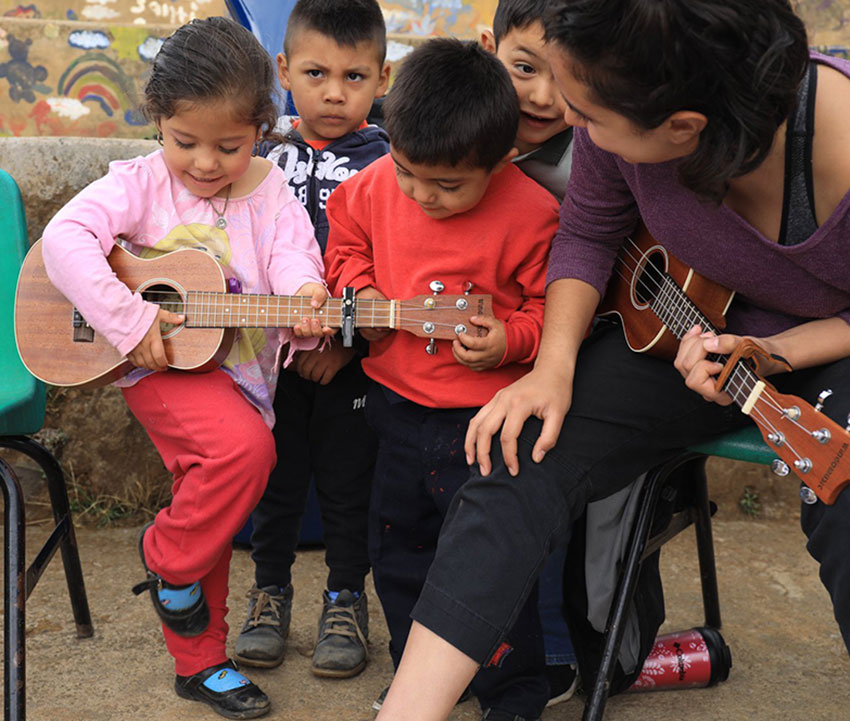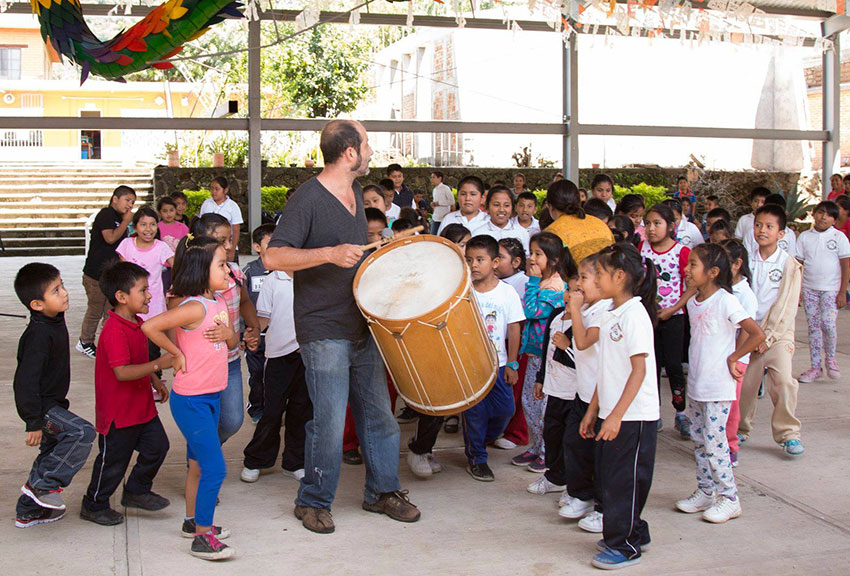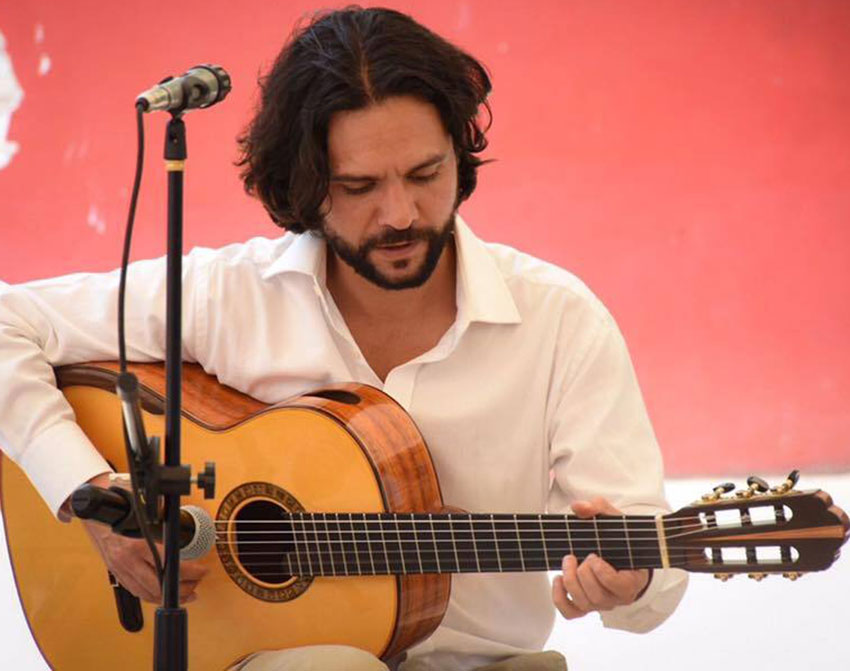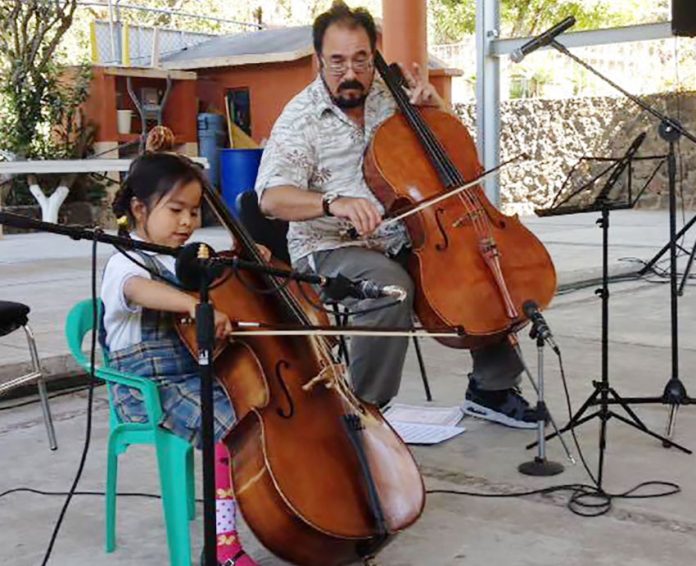Not content with a successful international career, a Mexican musician has chosen to work at providing artistic opportunities to Mexican children.
World-renowned classical guitarist Morgan Szymanski, born in Mexico City in 1979, has created an organization that so far has offered music workshops to more than 17,000 children.
Szymanski is descended from Coronel Ignacy Szymanski, a Polish military officer who migrated to New Orleans in the 19th century and whose son, Jean, made his way to Mexico after the civil war. His mother came from Scotland to study Mexican textiles, married his father, and served as the head of the Edron (British) School in Mexico City for a number of years.
Their son started playing the guitar at age 6 with the support of his parents. After studying at the National School of Music in Mexico he continued at the Edinburgh Music School and the Royal College of Music in London, graduating in 2004.
In 2015, he was named by the Ministry of Foreign Affairs as one of 100 Mexican artists with international impact.

During his time in the U.K. he worked with Live Music Now! (LMN) a project of international violinist Yehudi Menuhin that takes young performers into nursing homes, hospitals and rural villages to play music.
In 2016, Szymanski founded PRISMA (Programa de Retribución e Impacto Social Mediante las Artes), using a crowdfunding campaign that collected money from all over the world.
PRISMA is affiliated with LMN, but is more ambitious. The latter focuses only on setting up live musical performances but PRISMA does more and integrates more kinds of art.
Its main performance events are festivals. In February for each of the past four years it has put on multi-day events in the towns of Tepoztlán, Morelos, (where Szymanski lives) and Valle de Bravo, several hours west of Mexico City.
After the earthquake of 2017, PRISMA organized an “artistic campaign” for damaged schools in Tepoztlán, offering workshops and raising money. It did the same for in Oaxaca after seismic events during the same year.
Fortunately, PRISMA festivals for 2020 were held before the Covid-19 pandemic shut everything down. This year the theme was Mexican folk music and featured two special guests — María Bernal and Angelina Benavides. It also included jazz guitarist Chris Van Buren, Finnish clown Sampo Kurppa, and Mexican violinist Nabani Aguilar.

During the rest of the year PRISMA sponsors workshops with schoolchildren living in highly marginalized areas, mostly in the state of Morelos. (Now, of course, they are on hold.) Artists go into schools and introduce their art, after which the students interview the artists to learn about their career. Of course, the artists perform as well.
Some workshops introduce children to multiple arts. For example, at one Szymanski played his guitar while students painted what they felt listening to the music.
The workshops are special because for many children it is their very first experience with the art presented. One appreciative teacher told Szymanski that “one of these workshops is worth six hours in the classroom.”
The organization recruits Mexican and international performers in music, visual arts, dance, film, acting and clowning to give the workshops to children, allowing them not only to see a live performance, but to learn something about it.
With luck, some of the children will be inspired to pursue an artistic activity. One of the artists is British violinist Lizzie Ball, who takes her experiences working with Mexican children home when she plays in venues such as the Royal Albert Hall.
The shows and workshops also give young performers a chance to develop their careers. They receive only a small fee, but almost all want to return. One very possible reason is that these artists are often the guests of the communities they visit — receiving food, lodging and other support from local families.

The “very Mexican welcome” that artists receive is a huge change from impersonal hotel rooms and gives artists, especially foreign ones, a glimpse into Mexican life they might never otherwise get.
PRISMA is the only program of its type in Mexico. Most of the activities are privately funded although the government of Valle de Bravo has provided support there. Szymanski believes it is important for Mexico as there are so many children in need of artistic contact.
It is easy to get children and schools interested in the workshops but the problem is that once the activities grow past a certain size, it becomes necessary to work with government bureaucracies.
But Szymanski believes that PRISMA can go national. He says that despite the organization’s small size, they have reached thousands of children. Sometimes, he says, “If you keep things small, you can do things well.”
Leigh Thelmadatter arrived in Mexico 17 years ago and fell in love with the land and the culture. She publishes a blog called Creative Hands of Mexicoand her first book, Mexican Cartonería: Paper, Paste and Fiesta, was published last year. Her culture blog appears weekly on Mexico News Daily.
